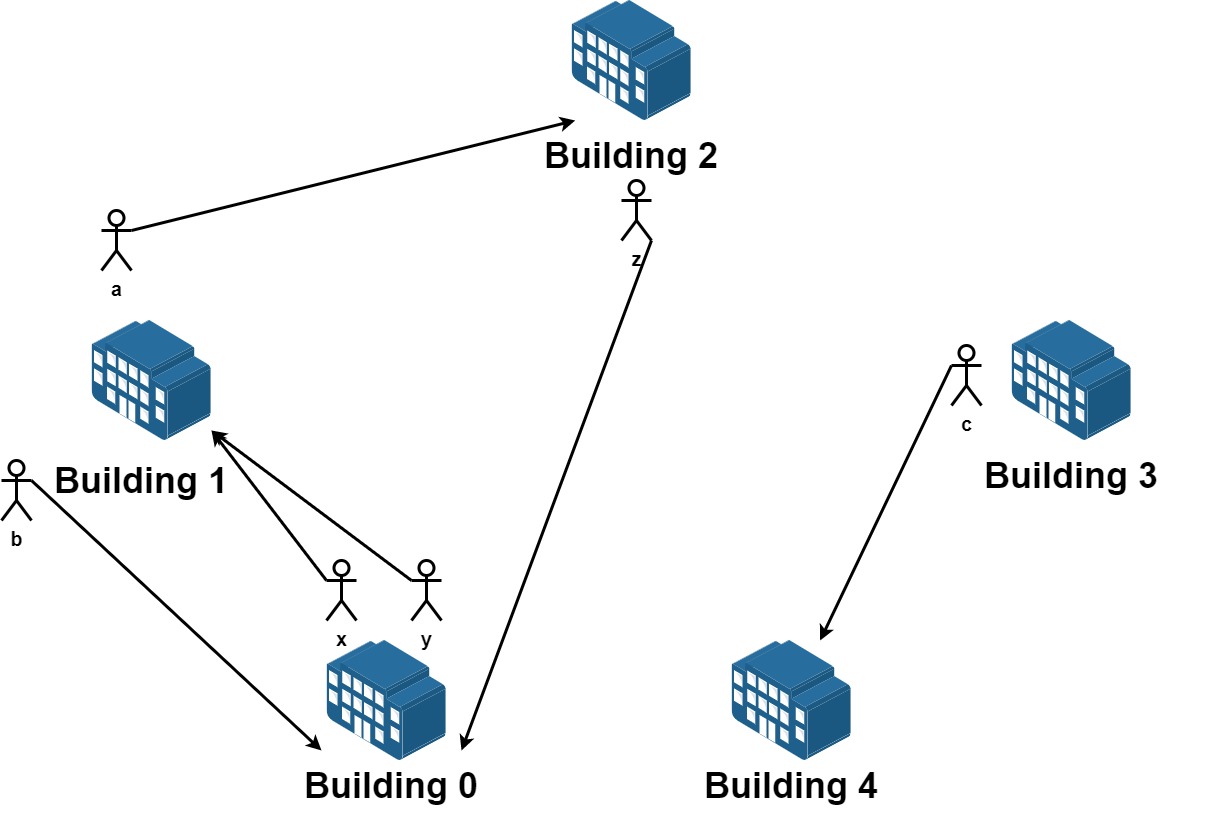题目描述
声明:只是记录一下code 没写题解 详见leetcode评论区

样例
Input: n = 5, requests = [[0,1],[1,0],[0,1],[1,2],[2,0],[3,4]]
Output: 5
Explantion: Let's see the requests:
From building 0 we have employees x and y and both want to move to building 1.
From building 1 we have employees a and b and they want to move to buildings 2 and 0 respectively.
From building 2 we have employee z and they want to move to building 0.
From building 3 we have employee c and they want to move to building 4.
From building 4 we don't have any requests.
We can achieve the requests of users x and b by swapping their places.
We can achieve the requests of users y, a and z by swapping the places in the 3 buildings.
算法1
(枚举然后检验) $O((N + R) * 2^R)$
Python3 代码
def maximumRequests(self, n, req):
for k in range(len(req), 0, -1):
for c in itertools.combinations(range(len(req)), k):
degree = [0] * n
for i in c:
degree[req[i][0]] -= 1
degree[req[i][1]] += 1
if not any(degree):
return k
return 0
算法2
Python3 代码
def maximumRequests(self, n: int, requests: List[List[int]]) -> int:
nr = len(requests)
res = 0
def test(mask):
outd = [0] * n
ind = [0] * n
for k in range(nr):
if (1 << k) & mask:
outd[requests[k][0]] += 1
ind[requests[k][1]] += 1
return sum(outd) if outd == ind else 0
for i in range(1 << nr):
res = max(res, test(i))
return res


传错题了吧
谢谢指出,已更正为leetcode,之前刚来没搞清楚题库集群,抱歉了哈